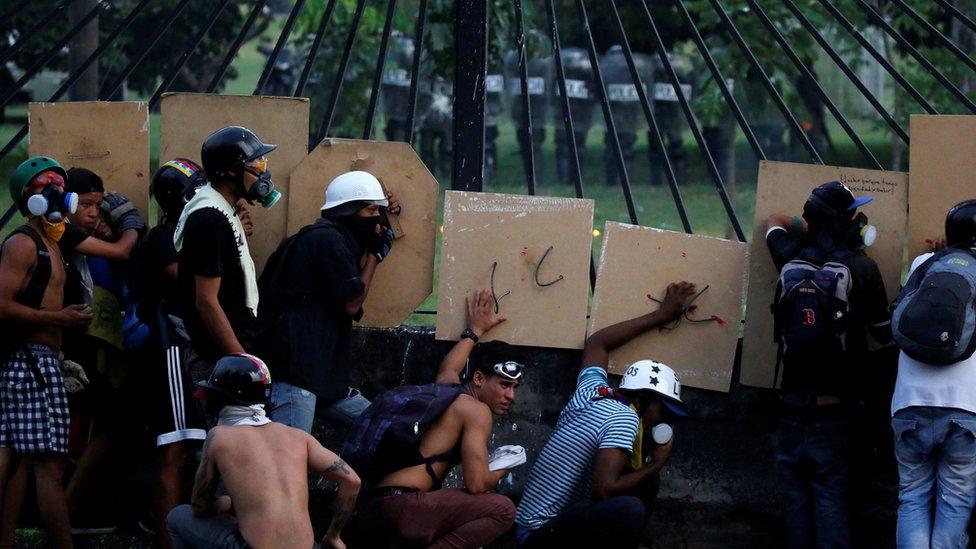Venezuela opposition Capriles leader 'beaten' at protest
- Published
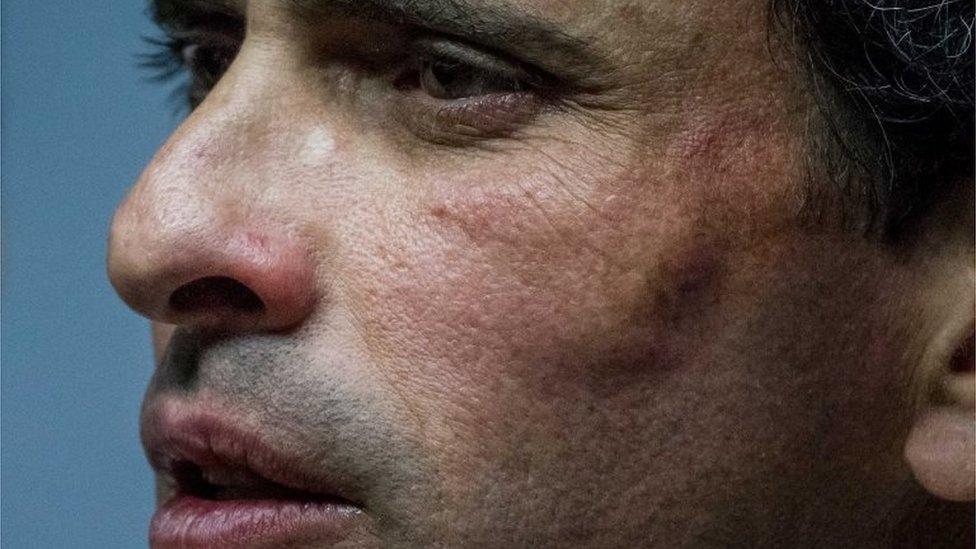
Henrique Capriles said he had been beaten with a helmet in the face
Venezuelan opposition politician Henrique Capriles says he and members of his team were beaten by members of the National Guard as they left an anti-government protest on Monday.
"They cornered us, they beat us..." Mr Capriles said. "They robbed us all. They took my team's watches, radios, gas masks."
A lawmaker was also injured in Monday's clashes in the capital Caracas between protesters and the security forces.
More marches are planned for Tuesday.
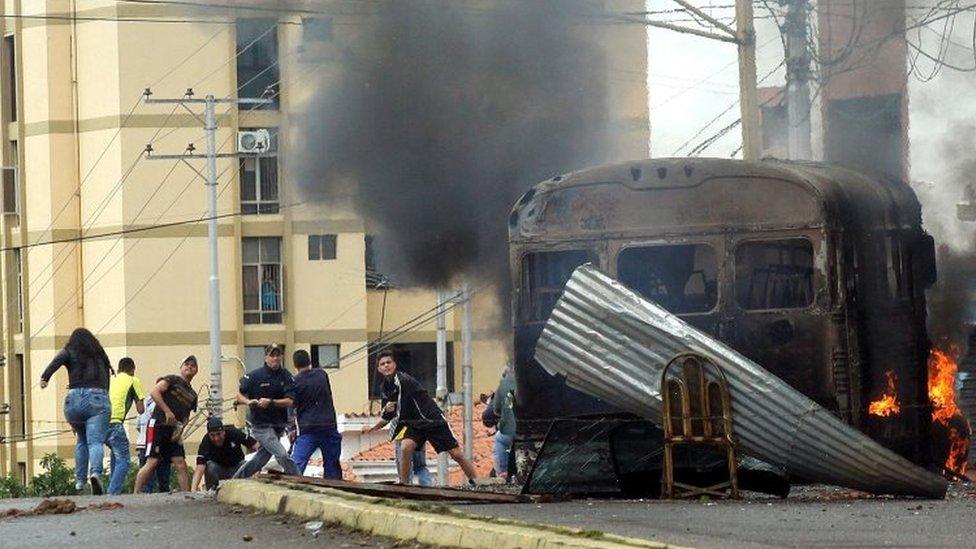
Protests were not confined to Caracas. In the western city of San Cristobal, demonstrators set buses alight
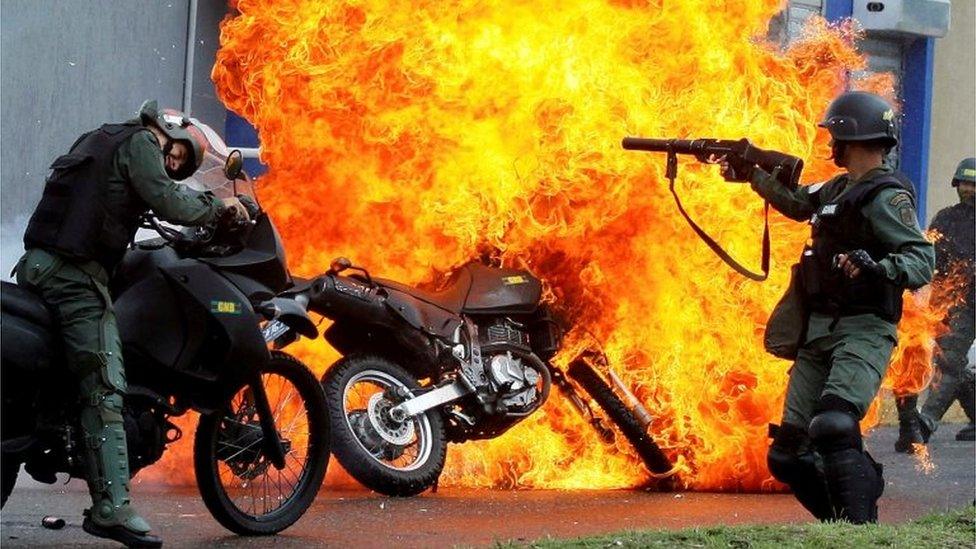
The protests in San Cristobal have been particularly violent
'Ambushed'
Anti-government protesters had been marching towards the office of the ombudsman but found their way blocked by the National Guard.
They threw petrol bombs and stones at the security forces, who fired tear gas in return.
At a news conference, Mr Capriles, with a visible bruise on his face, said he and members of his team had been targeted deliberately.
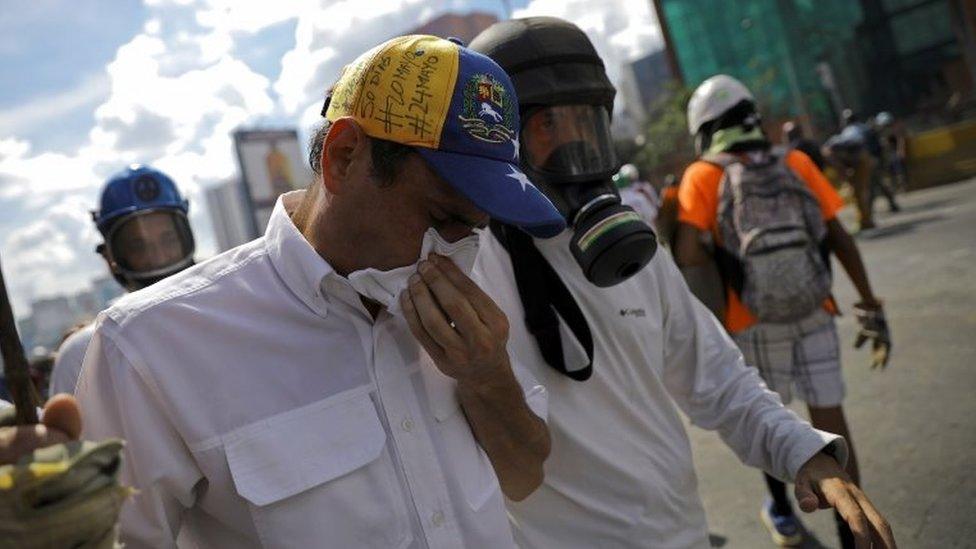
Henrique Capriles was attending an anti-government march in the capital Caracas
"I was practically choking [from the tear gas]... when a National Guard team ambushed us," he said, showing photos of the injuries some of his supporters had suffered.
"They took all of their gas masks and their helmets," Mr Capriles said.
"I asked them 'what is wrong with you?' and their answer was to hit me with a helmet in the face."
Mr Capriles said he would file an official complaint. The National Guard has so far not responded to the allegations made against them.
Opposition leaders say more than 250 people were injured in Monday's protests.
Among them was opposition lawmaker Carlos Paparoni, who needed stitches after he fell to the ground when he was hit by a water cannon.
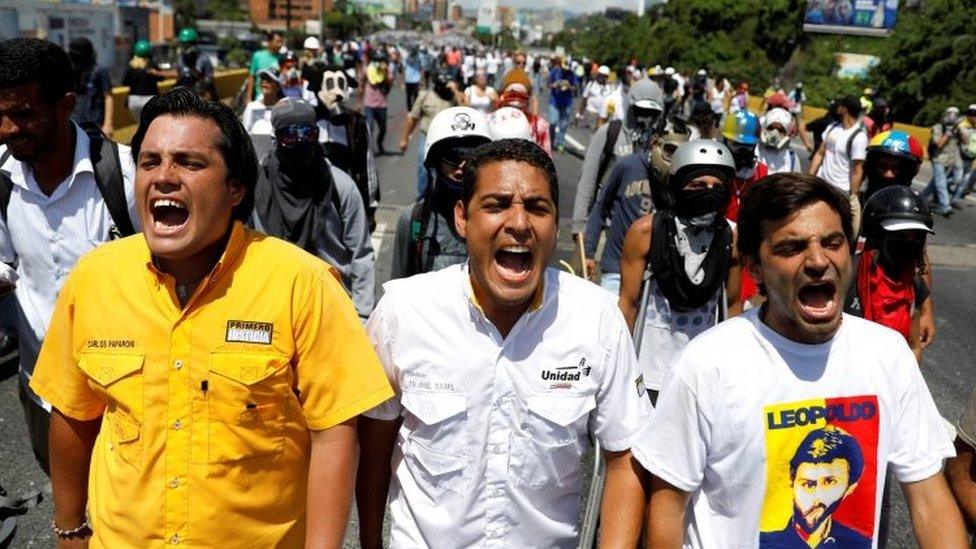
Carlos Paparoni (in yellow) was among lawmakers marching on Monday
Almost 60 people have died in protest-related violence since the latest wave of anti-government unrest began across the country on 1 April.
The parents of Juan Pablo Pernalete, a student killed when he was hit by a tear gas canister at a protest on 26 April, called on the authorities to put an end to "the repression".
"Enough of so much repression by the forces tasked with ensuring our security and public order," the statement by José Gregorio Pernalete and his wife Elvira Llovera read.
"Like so many other youths, all that our son wanted was to express himself freely as the Venezuelans they are and who have the right to do so.
"Protesting is not a crime, protesting does not mean toppling a government, protesting only means that things aren't going well and that people are demanding a change of economic and social policies. That's why no one has the right to repress or kill a Venezuela merely for protesting."
On Sunday, opposition leaders called on their supporters "to step up the pressure" on the government and to join marches scheduled for the rest of the week.
- Published22 May 2017
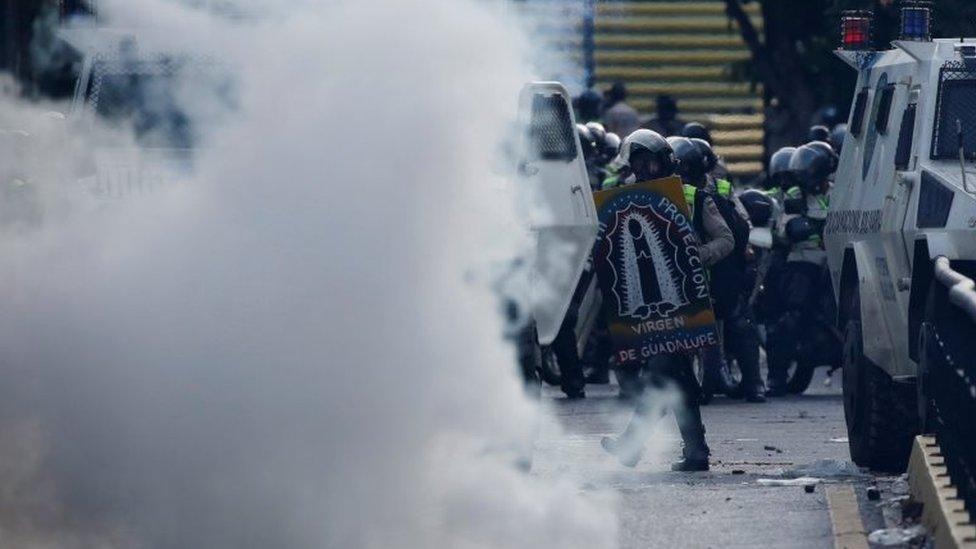
- Published19 May 2017
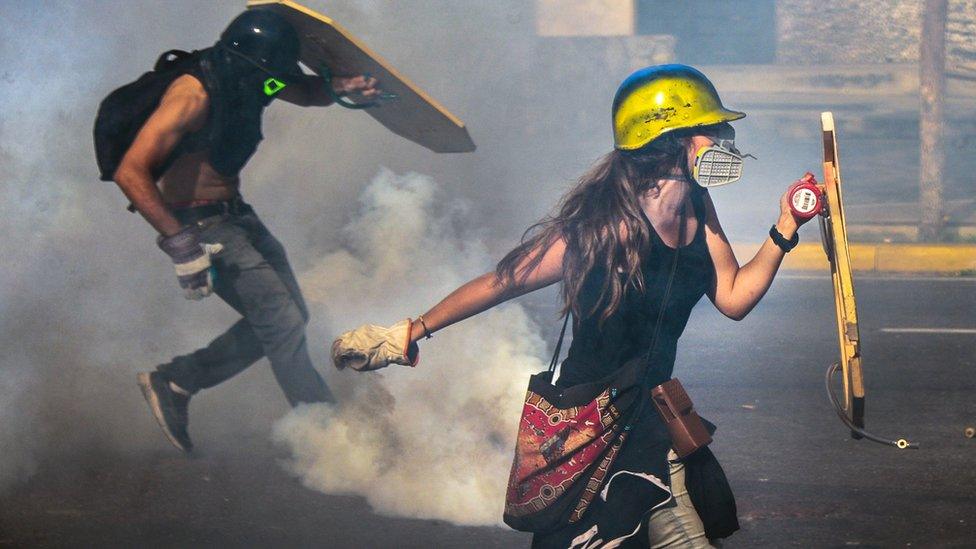
- Published9 May 2017
